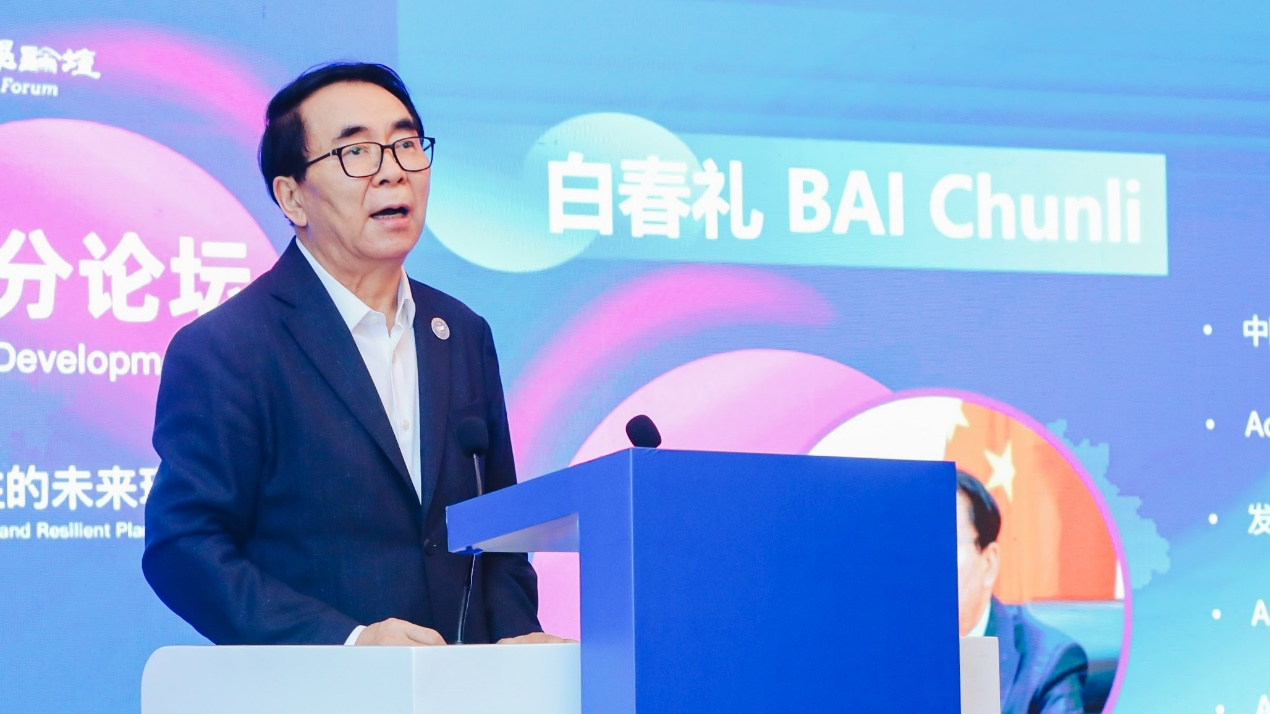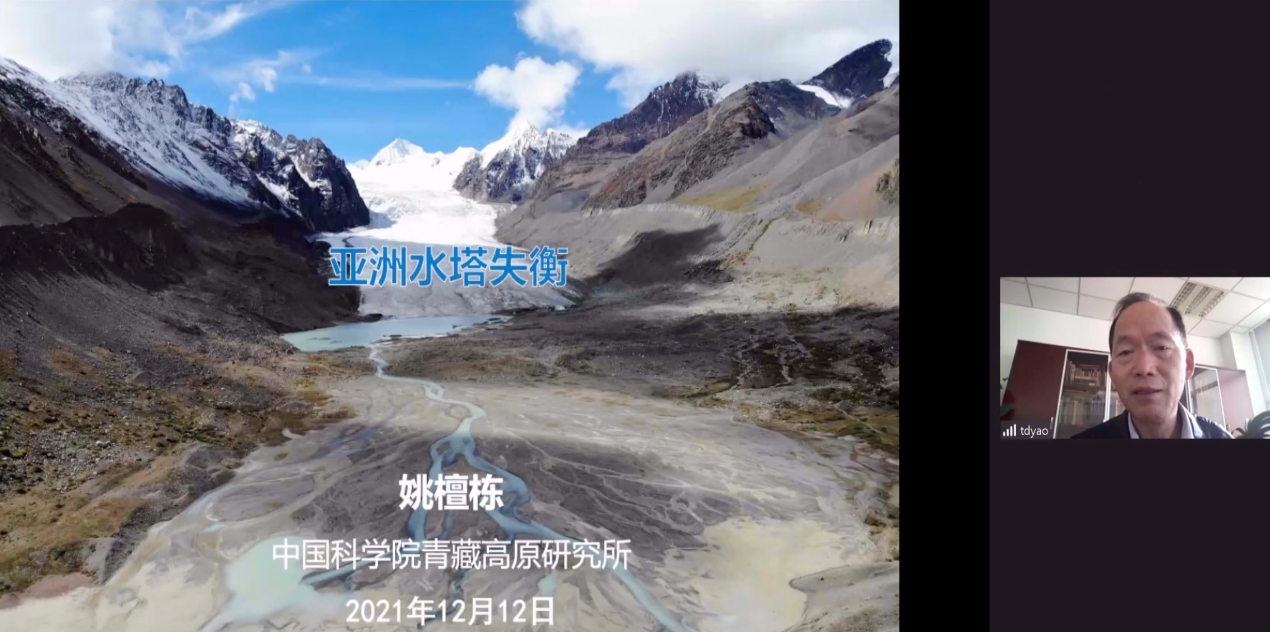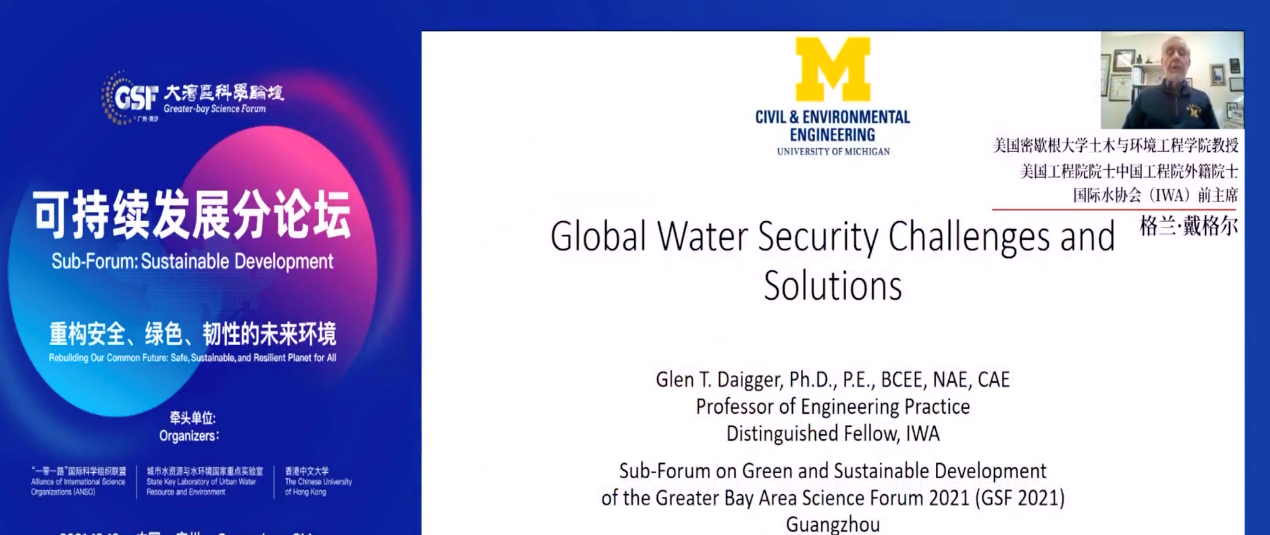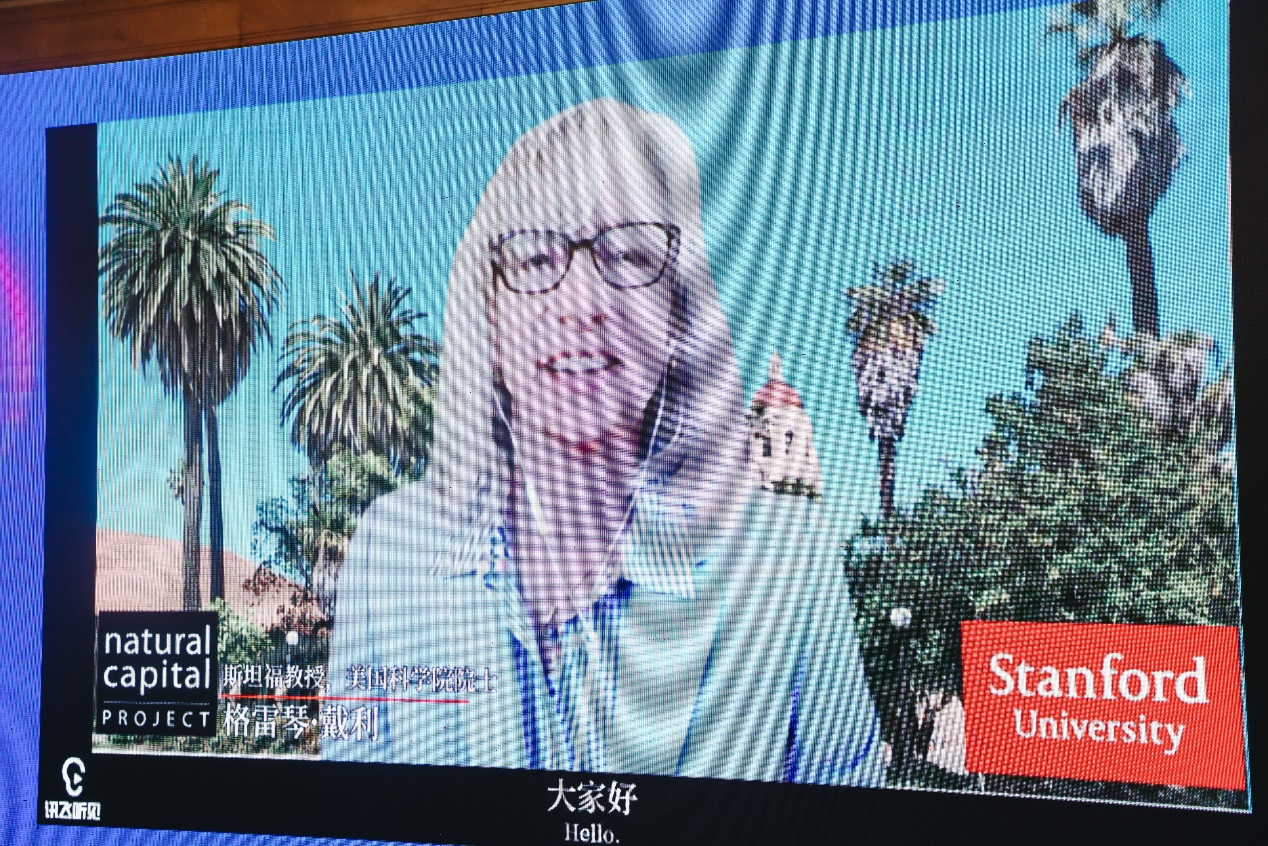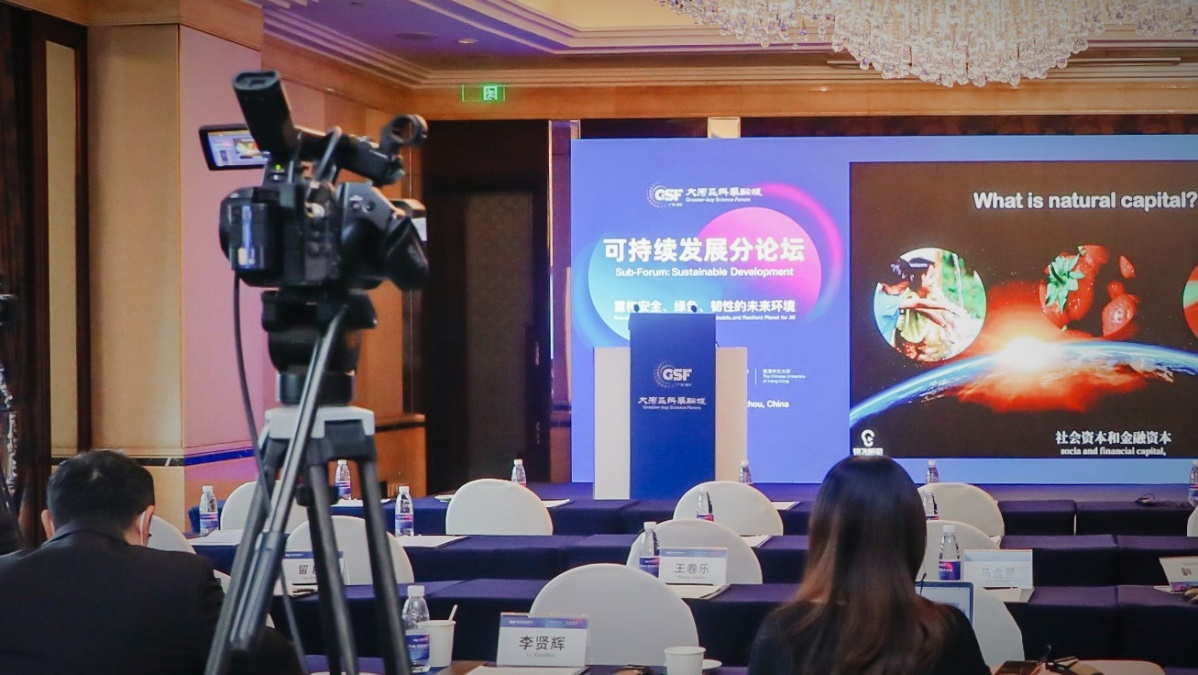"China is leading the world in advancing an ecological civilization, mindset and institutions to support it."stated by Prof. Gretchen C. Daily from Stanford University. At the Sub-Forum on Sustainable Development of the Greater Bay Science Forum (GSF) held on 12 December 2021 in Guangzhou, China, a dozen of top-level scientists from both China and around the world were invited to share insights and the recent scientific advances on five major sustainable development issues, which are environmental change and biodiversity conservation, global water security and disaster prevention and reduction, carbon neutrality and industrial transformation, human development in the post-epidemic era, and green agriculture and sustainable food supply. With “Rebuilding Our Common Future: Safe, Sustainable, and Resilient Planet for All” as the theme, the sub-forum was co-organized by the Alliance of International Science Organizations (ANSO), State Key Laboratory of Urban Water Resource and Environment of China, and the Chinese University of Hong Kong (CUHK).
Prof. BAI Chunli, President of ANSO, Prof. Rocky S. Tuan, Vice-Chancellor and President of CUHK, Prof. REN Nanqi, Director of State Key Laboratory of Urban Water Resource and Environment, all gave opening addresses on behalf of the organizing committee. Representatives of ANSO Members and international partners were also invited to extend their congratulations to the meeting. They are: Prof. Hasan Mandal, President of the Scientific and Technological Research Council of Turkey (TUBITAK), Prof. Luiz Davidovich, President of the Brazilian Academy of Sciences, Prof. Felix D. Dakora, President of the Africa Academy of Sciences, Prof. Ibrokhim Abdurakhmonov, Minister of Ministry of Innovative Development of Uzbekistan, Prof. ZHANG Linxiu, Director of UNEP-IEMP, and Prof. CHEN Deliang at the University of Gothenburg.
Prof. BAI Chunli
Prof. BAI laid down the tone of the sub-forum by raising an appeal of promoting international, interdisciplinary, intersectional communication and collaboration, and founding a firm platform to share opinions and experience in the foreground of scientific cooperation and sustainable development. Technological innovation plays a crucial role in achieving the sustainable development of human society, and in fighting against common challenges of humanity, such as climate change, food security, and energy shortage. The topics in the forum were not only closely associated with the sustainable development of the Greater Bay, but also with the related regions, and the world.
Prof. YAO Tandong
On the topic of “environmental change and biodiversity conservation”, Prof. YAO Tandong from the Institute of Tibetan Plateau Research of CAS analyzed the imbalanced circumstance of the Asian Water Tower, i.e. the Tibetan Plateau area, caused by global warming and warned the potential risk of such status quo. Prof. Nils Chr. Stenseth from the University of Oslo shared his discoveries and thoughts on the influence of human activities on eco-environmental change and the impact on the loss of biodiversity. He particularly mentioned the damage to biodiversity by extreme weather events. Prof. REN Hai from the South China Botanical Garden of CAS, reported on the progress of implementation on the global strategy for plant conservation in China. Prof. SHU Zufei from Guangdong Chebaling National Nature Reserve shared their 20 years' experience in the protection of the national nature reserve. He particularly mentioned Chebaling as a natural barrier supporting the sustainable development of the Zhujiang River Delta. All speakers emphasized the urgency of shared wisdom and joint actions in protecting our earth and in addressing the climate change challenge as all these big challenges cannot be tackled by any one country.
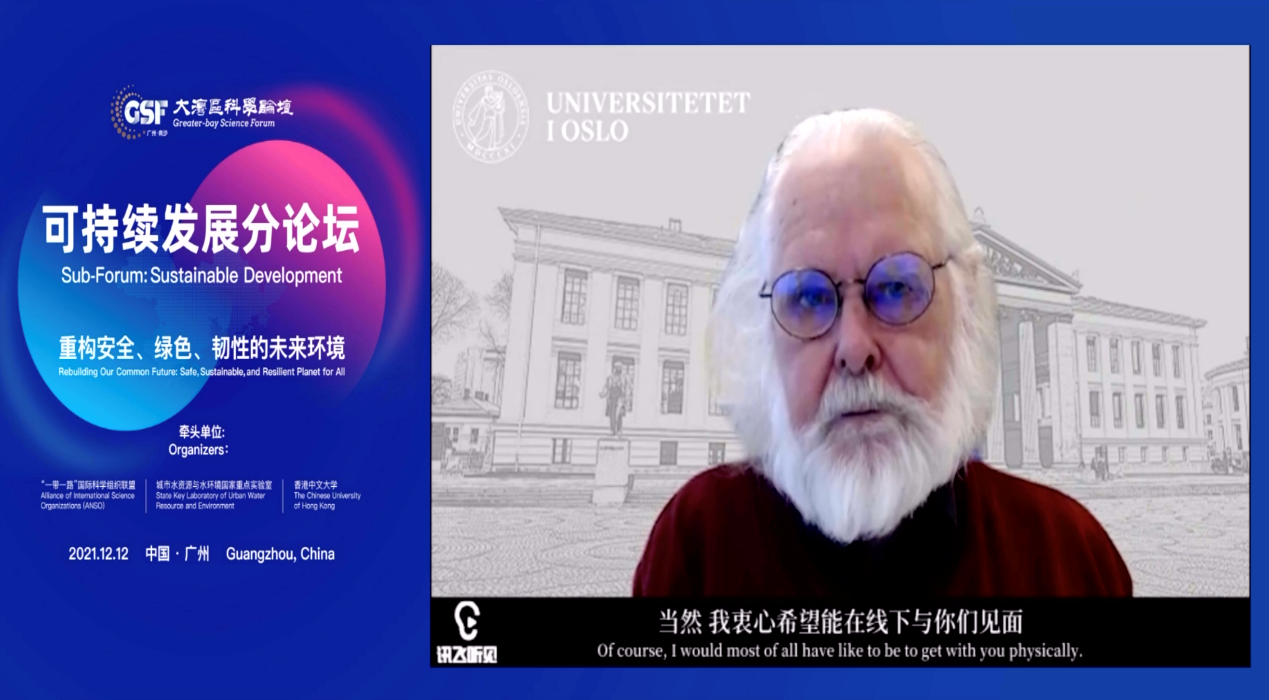
Prof. Nils Chr. Stenseth
As an old Chinese saying goes, “People regard food as their prime want.” Prof. ZHANG Jiabao from the Nanjing Institute of Soil Science, CAS, Prof. ZHU Yongguan from the Institute of Urban Environment, CAS, Prof. CHENG Guoqiang from the Committee of the Chinese Development Research Center of the State Council, and Prof. LAM Hong Ming from the School of Life Sciences of CUHK all gave excellent presentations on the topic of food security. Both Prof. ZHANG and Prof. ZHU talked about the importance of soil quality and health for sustainable agriculture and food security and called on greater efforts in protecting our eco-environment. Prof. CHENG elaborated on the Chinese agricultural development policy and his observation and analysis on the recent changes, stating the need on enhancing international cooperation. Prof. LAM elaborated on the international cooperation and experience in the research, development and application of drought-resistant soybeans in the mainland of China and Africa.
Under the topic of “carbon neutrality and industrial transformation”, Prof. ZHANG Suojiang from the Institute of Process Engineering of CAS, gave a comprehensive introduction on innovations on green and low-carbon technology. Prof. JI Xiaoyan from Lulea University of Technology (Sweden) shared the practice and experience of Sweden’s efforts to promote green development through biomass gasification.
Prof. Glen T. Daigger
Water is of fundamental importance to human existence. Concerning global water security and disaster prevention and mitigation, Prof. Glen T. Daigger from the University of Michigan, stated that the lack of management of water causes the loss of biodiversity, and how to use water to change the natural environment should be regarded as a global task. Prof. REN Nanqi from the State Key Laboratory of Urban Water Resource and Environment, and Prof. CHEN Yongqin from the Department of Geography and Resource Management of CUHK, both introduced their scientific works, covering from the planning of “sponge” city development to sewage disposal, from upgrading the global efficiency of water conservation and utilization to improving individual water-saving behavior, and from climate change to decreasing the damage of flood disasters.
Prof. Gretchen C. Daily
In terms of human development in the post-epidemic era, Prof. FU Bojie from Beijing Normal University, introduced a systematic approach: Classification-Coordination-Collaboration. He believes that this model not only contributes to fight against the COVID-19 pandemic but also to global sustainable development. Prof. Gretchen C. Daily, from Stanford University, stated the need to enhance the value of nature and natural resources for green and sustainable development and showed several recent achievements in the ecological environmental protection realm. She particularly highlighted the Chinese achievements with the influence of the ecological civilization concept. Prof. KWAN Mei Po from the Institute of Space and Earth Information Science of CUHK, presented the results of her research, which allows monitoring and analyzing the association between people's health status and their surroundings through spatial information data technology, as well as analyzing the infection of COVID-19 in different populations during exercise.
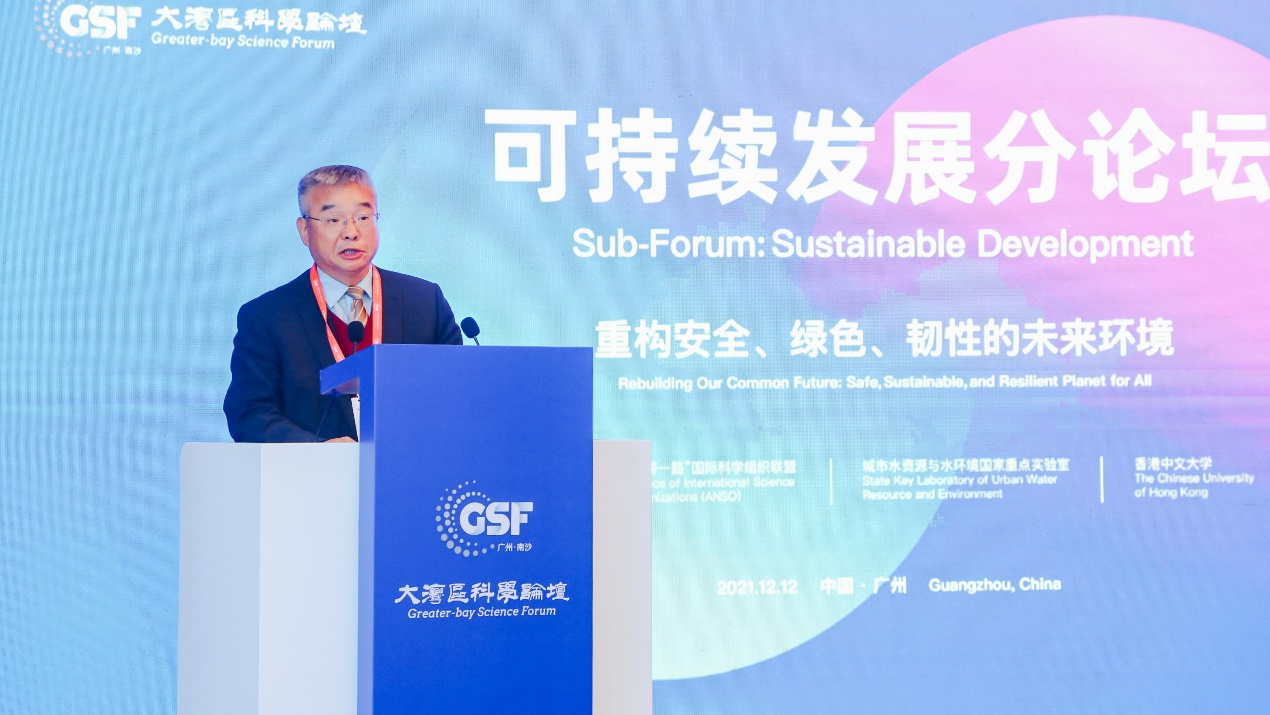
Prof. CAO Jinghua, Executive Director of the ANSO Secretariat chaired the forum. He thanked all the addresses and audience for their contributions and concerns to green sustainable development. He also concluded the great value of science in the process of approaching the goal of sustainable development, and the urgency and essentiality of international scientific collaboration in working out global problems. As the sponsor of the sub-forum and simultaneously a pioneer in promoting international scientific collaboration, ANSO shoulders the responsibility and plays a positive role in establishing an open and sharing platform and empowering international scientific research to push forward humanity’s sustainable development.
The Sub-forum on Sustainable Development of GSF 2021
The Greater Bay Science Forum 2021, launched by ANSO and sponsored by the People’s Government of Guangdong Province, holding a theme of “Exploring the Future, Sharing Scientific Achievement”, attracted over one hundred experts and academicians all over the globe to gather and discuss the frontier hotspots of science, such as life sciences, nanoscience and network communications, to promote scientific and technological cooperation in the Greater Bay Area and the whole globe. As one of the sub-forums of the Greater Bay Science Forum, the sub-forum of sustainable development also came into the spotlight.

